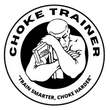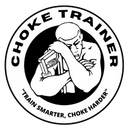 Turning Failures into Fuel: Lessons Learned from Small Setbacks
Turning Failures into Fuel: Lessons Learned from Small Setbacks
We’ve all heard it before: “Failure is a stepping stone to success.” But when you’re in the thick of a setback—big or small—it rarely feels that way. Whether it’s a missed workout, a rough day on the mats, or a personal goal that didn’t go as planned, failure has a way of hitting hard. The truth is, it doesn’t have to.
At our gym and in the larger journey of personal development, we believe setbacks aren’t the opposite of progress—they’re part of it.
The Power of Reframing: Mistakes as Data, Not Defeats
One of the most powerful mindset shifts you can make is to stop seeing mistakes as reflections of your identity and start seeing them as data points. Each failure is feedback. It’s telling you something about your approach, your habits, or your assumptions.
-
Missed three workouts last week? That’s not laziness—it’s information about how your schedule (or recovery routine) might need adjustment.
-
Gassed out halfway through sparring? That’s not weakness—it’s a signpost showing where your conditioning or pacing strategy could use a tweak.
-
Tried a new technique and got tapped five times in five minutes? That’s not embarrassment—it’s insight on timing, positioning, or what to drill next.
Every time you “fail,” you’re collecting valuable data. It’s like running a test. If you approach it with curiosity instead of criticism, you unlock the ability to learn faster and grow stronger—physically and mentally.
Real-World Examples: Growth in Action
Take Chris, one of our members who struggled with consistency early on. He’d show up strong for two weeks, then disappear for one. Rather than beat himself up, we helped him look at the “why.” It turned out his job stress was peaking mid-month. Once we identified the pattern, he adjusted his training goals for that time and shifted his workouts accordingly. Today, he’s one of our most consistent athletes—not because he avoided failure, but because he learned from it.
Or Jess, who froze up every time she was in a bad position during rolling. She felt like a failure for not escaping. But instead of quitting, she started treating those rolls as “study sessions.” She watched her breathing, slowed her reactions, and asked better questions after class. Her progress skyrocketed once she embraced the idea that getting stuck was part of the process—not a reason to feel ashamed.
Failures didn’t stop these members. In fact, their willingness to learn from small setbacks made them stronger, faster.
Why This Matters in the Bigger Picture
Growth isn’t linear. And those who thrive over the long haul aren’t the ones who avoid failure—they’re the ones who use it. They get curious. They reflect. They adapt. And slowly but surely, they move forward—better prepared, more resilient, and more confident.
This applies far beyond martial arts or fitness. It’s just as true in relationships, career growth, or building discipline in daily life. The key is to stay in the game and use every stumble as fuel for your next step.
Final Thoughts: Keep Moving Forward
If there’s one thing we’ve learned through years of training and coaching, it’s this: you are not your setbacks. What matters is what you do with them. Take time to reflect, learn, adjust—and then keep showing up. That’s how progress happens.
If you’re ready to surround yourself with a community that sees failure as part of the path—and supports you through it—we’d love to help. Whether you’re just starting out or getting back on track, there’s a place here for you.

